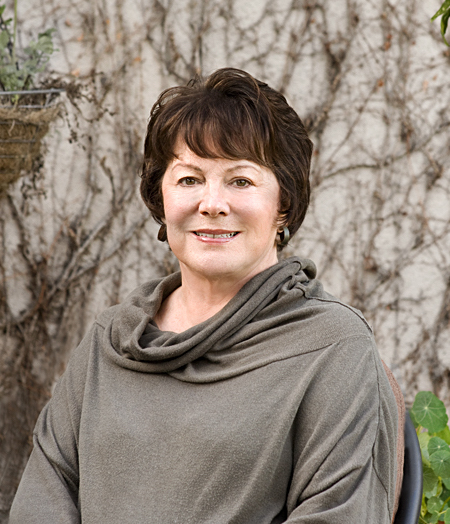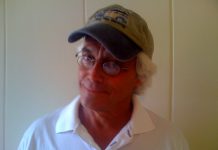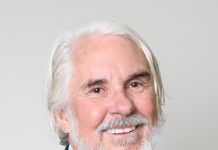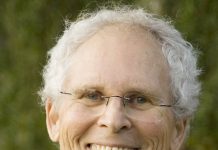It Can Be Done

By Jean Hastings Ardell
When I last wrote this column a while back, the subject was trees. One might think that’s a benign topic for a column, but one would be wrong. Long-time Laguna residents understand this – trees and their trimming being one of the most contentious issues among neighbors in our bucolic beach town. This was confirmed over coffee with a conservative friend of mine who had recently gone on the board of his homeowners’ association. Trees, he affirmed, were way high on the list of complaints from his neighbors.
That made me think: If we can’t even agree about trees in this town what hope is there that we can find common ground on other issues, like land use, what we teach our children, police reform, and so on and on? Two recent outings give me hope. The first was an evening my husband Dan and I spent last week in Los Angeles. The occasion was a celebratory dinner for the purchase of a 1904 Craftsman-style house in the MacArthur Park neighborhood. It was the only property on the street not owned by Camino Nuevo Charter Academy (CNCA), a nonprofit charter school that helps kids from the mostly Latino neighborhood beat the odds. Started in the late 1990s in a converted mini-mall by an Episcopal priest named Philip Lance with the vision of providing high quality education to an underserved population, the academy currently educates 3,600 students from pre-school through high school each year on its eight campuses. In 2018, 70 percent of the graduating seniors qualified for admission to four-year universities. The celebratory dinner was held at Republique, a French restaurant with such refined sensibilities that my order of a diet Coke was turned down. They don’t serve diet drinks. As I looked around the table at the donors who had made possible this latest purchase, I was reminded of how CNCA was able make a difference: Over the years its board of directors has attracted Asians, Blacks, whites, and Latinos, some of whom grew up in inner-city L.A.; Christians, Jews, Buddhists, and possibly some atheists; gays and straights; Westside liberals and conservative businesspeople. Over the years, the men and women of the board have learned one another’s stories; friendships have been forged that transcend their differences. Why? Because the board members refuse to lose sight of the common goal: the education of these kids. Which is why the forthcoming debate over how to best use the yellow house will be passionate, creative, and collegial.
Closer to home, last Saturday I attended a three-hour workshop in Corona del Mar co-hosted by Bleed the Same, the grassroots group Dan and I became involved with after the death of George Floyd, and Braver Angels, the national, bipartisan, nonprofit organization that fosters civil discourse on political and religious issues.
The subject: Depolarizing Conversations About Race. The goal of the workshop was not to change anyone’s mind but to practice skills that enable people to actually listen to one another’s points of view. From the comments of conservatives and liberals, the workshop was well-received. People felt heard. If you’ve read David Weinstein’s column in this issue, you know that he also attended the workshop. I joked with David that we ought to form a coalition of two to bring a Braver Angels workshop to Laguna—meaning the whole town: the city council, the police department, the school board, Liberate Laguna, Village Laguna, the Laguna Beach Democratic and Republican clubs. But it’s no joke. Can you think of any other remedy that might calm the diatribes that have exhausted our town’s civility?
David and I are not alone in this approach. In last Sunday‘s New York Times, other writers offered similar thoughts. Kwame Anthony Appiah responded to a reader who essentially asked, “Should I Hang Out With Someone Whose Political Views I Hate?” Appiah’s counsel was, I think, wise: “Despite the forces that would keep us socially and even geographically isolated from one another, you each have a reason to try to understand the other tribe. Democracy falters when we lose interest in trying to make sense of the other person’s point of view and in trying to persuade that person of the merits of our own.”
And in the Sunday Review, Nicholas Kristof wrote of Daryl Davis, a Black musician, who “struck up a friendship with a K.K.K. member, each fascinated by the other. Davis went on to get to know numerous other Ku Klux Klan members. Kristof quotes psychologist Adam Grant, of the Wharton School of the University of Pennsylvania, who explained why Davis has been able to diffuse the racism of the K.K.K. members he’s met. “You won’t get through to people until you’ve earned their trust… you’re not likely to earn their trust until you’ve met them face-to-face and listened to their stories.”
Jean is a Laguna Beach resident member of the Third Street Writers.




